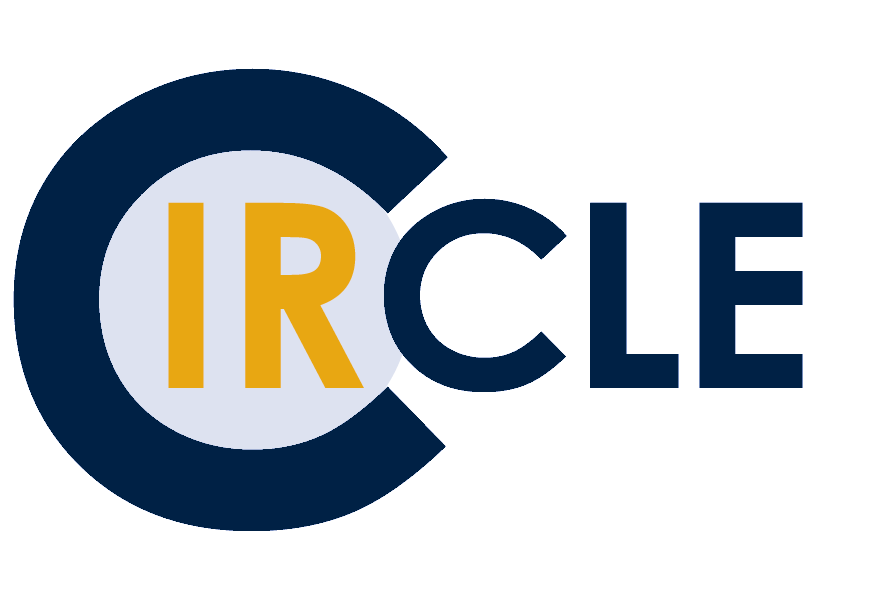Courtesy: UBC Library Communications & Marketing
Note: Part of this post was drafted by Sasha Han in 2022, a UBC School of Information graduate student and cIRcle’s Digital Repository Research Assistant at the time. It was integrated into this post to reflect ongoing progress and outcomes of the project.
The UBC Equity & Inclusion Office states that “[i]nclusion is an active, intentional, and continuous process to address inequities in power and privilege, and to build a respectful and diverse community that ensures welcoming spaces and opportunities to flourish for all” (n.d.). UBC Library commits to “acknowledge, encourage, and celebrate diverse experiences and perspectives, and … identify and address systemic barriers to inclusion,” while “creat[ing] and sustain[ing] an inclusive environment where everyone is respected and welcome” (UBC Library, 2019).
Guided by these commitments and values, a 2021-22 cIRcle unit goal centered around identification of opportunities for metadata enhancement and best practices regarding ethical and inclusive description of Indigenous content. We regard inclusive language as language that neither alienates nor actively discriminates against visitors to the repository, and/or language that minimizes potential harm caused by outdated terminology that may exist in original works.
As an institutional repository preserving the intellectual output of the university, cIRcle cannot edit the intellectual content of original submissions. We can, however, examine how we are describing these works in repository records and take steps toward making the experience of visitors who interact with the repository a positive one.
Background and Scope
This project focused on cIRcle’s theses and dissertations, available via UBC Theses and Dissertations in Open Collections. An electronic thesis or dissertation (ETD) is a digital representation of the work, either digitally created from a physical item or submitted electronically. The original focus of this project was on cIRcle’s Retrospective Theses and Dissertations (Retro ETDs), which contain over 30,000 works written from 1919-2007 that were digitized and added to cIRcle between 2006-2010.
As a legacy collection submitted in earlier days of cIRcle, the Retro ETD records followed different metadata workflows when compared to current guidelines and best practices. Upon submission of the print thesis or dissertation to the Library, subject headings were supplied by Library cataloguers according to standards for description at the time. Upon digitization and submission to cIRcle, these subject headings were transferred to the Subject Keywords field of cIRcle’s metadata. Over time, subject standards have changed. For example, Library and Archives Canada has made significant changes to Canadian Subject Headings (CSH) describing Indigenous peoples, communities and works. However, while headings were updated in the Library catalogue, the applied Subject Keyword metadata in cIRcle remained largely unchanged.
For more recent theses and dissertations, submitted directly to cIRcle by student authors (2007 to present), no Subject Keywords are applied, by either authors or Library cataloguers. There existed however approximately 1,100 records that did contain author-provided Subject Keyword values, before this practice came into effect.
The combination of outdated/unreviewed metadata and wider efforts at UBC Library (and libraries and archives more broadly) around inclusive cataloguing and metadata description led to prioritization of the Retro ETD collection for analysis, with a focus on Subject Keyword metadata related to Indigenous communities.
Methodology and Analysis
To begin, our Research Assistant exported the Retro ETD record metadata from cIRcle’s repository system, DSpace. The resulting CSV was imported into OpenRefine (an open source data-wrangling tool), where it could be filtered to only records containing Subject Keyword values.
The next task was a little more ambiguous: How do we define and identify “problematic” language addressing Indigenous peoples or communities in a systematic way? We built off documentation developed by our UBC Library colleagues (in consultation with Indigenous UBC Librarians) to assist in responsible metadata creation. This documentation contained a non-exhaustive list of problematic terms considered to be outdated, inappropriately-applied, or offensive to Indigenous communities and community members. These terms formed the basis for our initial analysis, allowing us to gain a better understanding of the frequency of problematic language addressing Indigenous peoples or communities in cIRcle’s Subject Keywords.
Review and Discussion
Review and discussion identified two primary options for addressing problematic Subject Keyword values.
One option was to update the problematic values to more inclusive and/or community-generated terms in current usage. However, numerous standardized vocabularies are applied to subjects at UBC Library, each with their own area of origin, context, focus, and application. We also needed to consider further consultation with Indigenous librarians and/or community members before proceeding with changes to terminology. An important consideration with this route, however, lay in the inconsistent application of existing subject headings in regards to degree of granularity, comprehensiveness, and omission. Further, modification of this subset of records would result in significant differences in metadata application across the Retro ETD collection. Additionally, the ongoing maintenance to ensure cIRcle Subject Keywords could be updated accordingly and as-appropriate was not feasible nor sustainable with current systems and resources.
Another option was to remove all Subject Keywords from the collection, whether they addressed Indigenous communities or not. Partial removal of only problematic values would create inconsistency within the collection and result in potential disservice and lack of representation of Indigenous topics. While assessing the discoverability and access, analysis by the cIRcle Specialist indicated Subject Keywords for this collection were used in less than 1% of searches from 2016-2022, and thus their removal would have minimal impact on usability and accessibility. Additionally, the full text search capabilities of Open Collections meant that any term removed from the Subject Keywords metadata would still be surfaced from the resource. Further, as ETDs do not have Subject Keywords applied at-present, removal would align the Retro ETD records with current practice.
Further discussion considered the importance of recording historical injustices, including contextualizing and alerting users to the existence of inappropriate metadata. But the risk of harm the continued inclusion of these values could cause users was a significant consideration.
Outcomes
Given the noted rationales, cIRcle decided in April 2022 to remove Subject Keyword metadata from item records in the Retro ETD collection. In July 2023, cIRcle decided to remove Subject Keywords from the approximately 1,100 remaining more recent ETD records, aligning the practice across all theses and dissertations (both retrospective and current) held by cIRcle.
Implications and Future Considerations
Analysis and exploration of cIRcle metadata during this project raised additional potential opportunities for future investigation regarding enhancement and best practices for ethical and inclusive description of Indigenous content. It is also our hope that this work be expanded in the future to metadata describing other marginalized and/or traditionally underrepresented communities.
There is ongoing and active work broadly regarding institutional repository metadata practices addressing Indigenous populations; examination of cIRcle’s own practices is therefore necessarily ongoing. It is important to note that any work involving language (and how we describe the world and represent diverse communities) is naturally iterative and best done with a collaborative and consultative approach.
cIRcle is committed to an active and ongoing approach to inclusive language in the repository metadata, and fields and practices undergo continuous assessment for further exploration as resourcing permits. Recent work is summarized on the Metadata Enhancements tab of the cIRcle Projects page. However, as noted in the Open Collections User Advisory, “users of Open Collections may encounter inaccurate, offensive, and/or outdated representations and/or terminology” (UBC Library, n.d.) and we request you contact us if you see any material that would benefit from metadata review.
References
UBC Equity & Inclusion Office. (n.d.). Equity and inclusion glossary of terms. https://equity.ubc.ca/resources/equity-inclusion-glossary-of-terms/
UBC Library. (n.d.). About Open Collections. https://open.library.ubc.ca/about
UBC Library. (2019). Strategic Framework. https://about.library.ubc.ca/about-us/strategic-framework/

